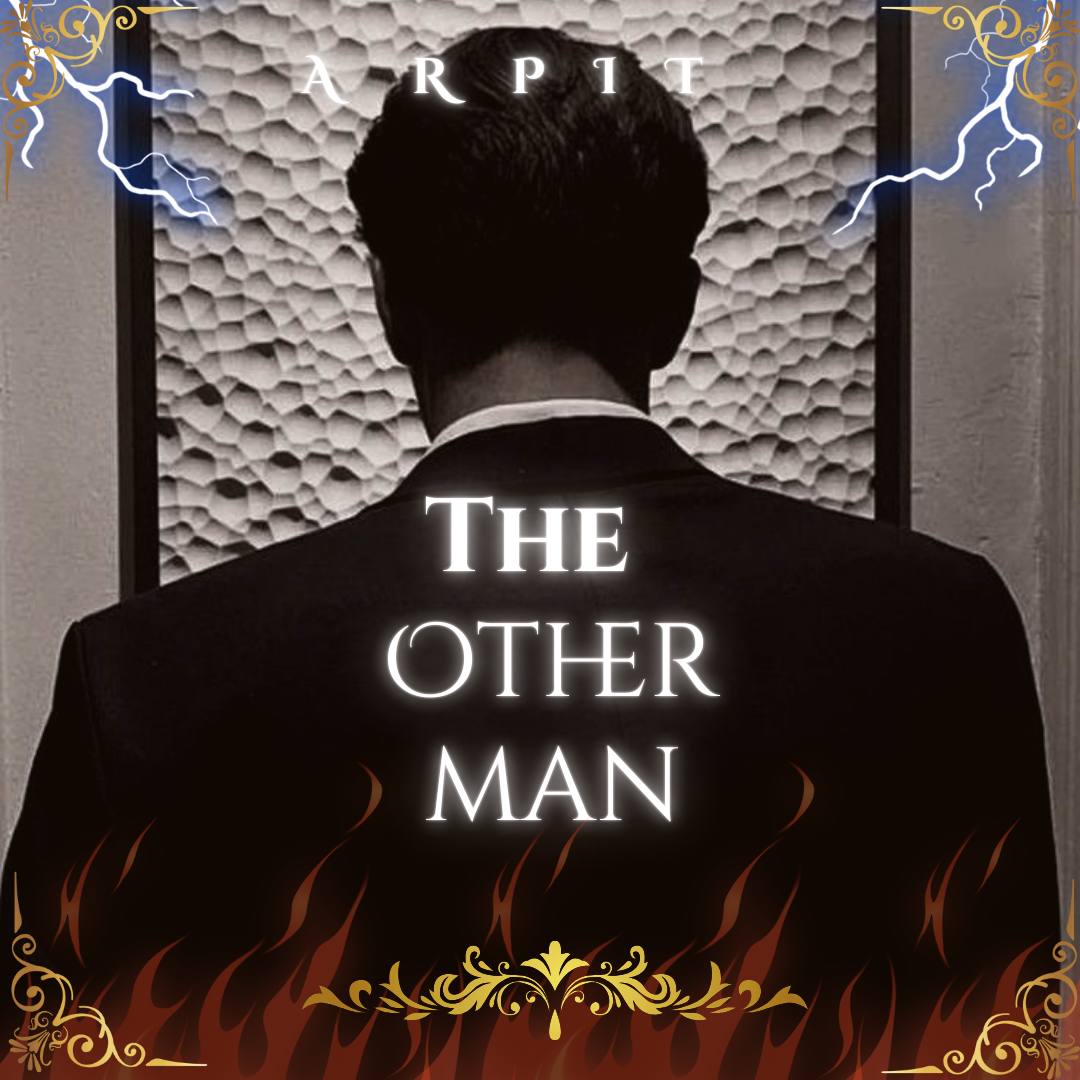

It was just another morning in the crowded, sun-drenched lanes of Saraswati Residency, where the Bajaj and Roy families had been neighbors—and enemies—for decades.
Inside the Bajaj bungalow, Mahendra Bajaj, the patriarch, sat on a carved wooden chair in the living room, sipping chai and flipping through the morning newspaper. He was at peace, enjoying the quiet hum of ceiling fans and the scent of fresh ginger in his tea. That is, until—
"Yeh sabzi kisne bheji!?"
(Who sent these vegetables!?)
The shrill voice of Deeplai, his younger daughter-in-law, echoed from the entrance. Mahendra’s brows knitted, paper lowering slightly.
"Arey kya ho gaya?"
(What happened now?)
From the kitchen, Yamini Bajaj, Mahendra’s wife, came rushing out, wiping her hands on her cotton saree. Alongside her came Dhriti, the elder daughter-in-law, half-confused, half-irritated, holding a ladle still dripping with dal.
All three stood staring at a large jute bag sitting near the door, its contents peeking out — glossy green lauki, fresh coriander?
“What is it??”
Yamini spoke, seeing another bag.
Mahendra finally folded his paper with a long sigh, rising slowly with the air of a man who had seen too much family drama to be fazed anymore.
"Kholo isse. Sab samajh aa jaayega," he said calmly.
(Open it. You’ll understand everything.)
As Dhriti untied the top of the bag and pulled it open, everyone leaned in.
Their eyes widened.
Fish. Raw fish. Soaked and wrapped in banana leaves.
Yamini gasped. Deeplai took a step back. Dhriti covered her nose.
"Ye toh Bengali ghar ka samaan hai!" Dhriti said.
(This belongs to the Bengali house!)
“DURGA PRASAD ROY!!!”
Just then — CRASH!
Kartik, Mahendra’s younger grandson, who had been asleep after a late-night party, fell straight off his bed upstairs.
"Kya hua!?"
(What happened!?)
he shouted, stumbling into the hallway. His hair was a mess, one shoe on, one off.
In the bathroom, Utkarsh, the middle grandson, paused mid-shampoo and sighed.
"Phir se shuru ho gaya..."
(Here we go again...)
Meanwhile,
The warm smell of luchi and aloo’r dom wafted through the Roy home. The women of the house were busy preparing breakfast in the kitchen, trays of sweets already lined up for packaging.
In the courtyard, Durga Prasad Roy, the old-school Bengali patriarch, was humming an old Rabindra Sangeet, lost in melody as he watched his grandson Dhruva practice the tabla.
“Jodi tor daak shune keu na aashe, tobe ekla cholo re…”
(If no one responds to your call, then go your own way...)
But just as Dhruva struck a perfect beat, a loud commotion rang out from the Bajaj home next door. Voices. Shouting. A door slamming.
The tabla shook under Dhruva’s hands.
Durga Prasad paused, blinked, and sighed, adjusting his glasses.
"Hmm... lagchhe abar Bajaj-er jatra palasuru hoye gache...."
(Sounds like the Bajaj circus has started again...)
Dhruva looked up, half-grinning.
"Maachh chole giyeche ora’r bari te?"
(Did our fish end up at their house again?)
The peaceful morning at Saraswati Residency had officially ended — replaced by sharp words, suspicious glances, and the unmistakable smell of raw fish.
Outside the Bajaj bungalow, Yamini Bajaj stood firm with her arms crossed, flanked by her daughters-in-law, Dhriti and Deepali, like a well-practiced battle formation. On the opposite side, the Roy family was gathering quickly — Mahua had flour dust on her hands, Bhumi Roy still held a rolling pin, and Durga Prasad Roy had abandoned his half-finished tea on the veranda.
The two households stared each other down like seasoned rivals.
Yamini spoke first, her voice cutting through the air.
"Bhumi ji, your vegetables and fish ended up at our house. This isn't a village council, please check your deliveries properly!"
Bhumi narrowed her eyes.
"Oh Yamini di, what do you think we are — GPS trackers for the vegetable guy? It’s clearly the delivery man’s mistake."
"And what about that lauki?" Deepali added with a scoff.
"Was that a mistake too?"
From the Roy camp, Mahua stepped forward, visibly offended.
"And what about our potatoes for the luchi? Where are those, haan? Honestly, it feels like this was all planned!"
"Planned?!" Dhriti fired back.
"As if we don’t have better things to do than steal your vegetables?"
Kartik Bajaj, still half-asleep, leaned on the gate, muttering:
"Everyone’s blood pressure is up before breakfast… great."
Over at the Roy house, Dhruva whispered to Anwesha:
"I should’ve brought popcorn for this."
Suddenly, from inside the Roy home, Dr. Mihiksha Roy stepped out — her hair still damp from a quick shower, towel draped casually over her shoulder. She looked at the commotion, then at her father, Santanu, and finally at the newest arrival — Vaibhav Bajaj, stepping out of his car, sunglasses on, looking like he walked out of a billboard.
Mahendra Bajaj, fixing his shawl over his shoulder, finally stepped forward.
"Durga Prasad, keep your sweet shop fish on your side of the wall. We’re running a business here, not a fish market."
Durga Prasad Roy, adjusting his specs, marched across the line as if it didn’t exist.
"And you keep your lauki and your attitude on your side. Maybe if your sons ran the business properly, the delivery wouldn’t have gone to the wrong door."
Mahendra scoffed.
"Oh, and what do you know about business, haan? Singing Tagore songs and selling mishti doesn’t count!"
Durga Prasad stepped closer.
"It’s called culture. Something your house has clearly never heard of."
"Culture?!" Mahendra barked a laugh.
"You mean shouting in tune while burning onions in the kitchen?"
"Oh please! Your bahus scream louder than our Puja loudspeakers!"
"Your sweet shop smells like diabetes!"
"Your sons look like they’ve just walked out of a stock market crash!"
Their voices rose, hands flying, heads shaking. It was chaos.
From the Bajaj side, Vaibhav stormed forward, pulling his Dadu back.
"Enough, Dadu! You’re yelling in public!"
From the Roy gate, Mihiksha ran out and grabbed her grandfather’s arm.
"Dadu, stop it! This is ridiculous!"
But neither Mahendra nor Durga Prasad listened. They tried lunging at each other again, shouting at the top of their lungs.
"Let go of me, Vaibhav beta !"
"Don’t hold me back, Mihiksha!"
Finally, both grandkids managed to push them apart — and now stood facing each other, breathless, in the middle of the battlefield.
And the real sparks began.
"Can’t you people go one day without starting a drama?" Vaibhav said, glaring.
"Excuse me?" Mihiksha shot back. "If your family could tell the difference between fish and bottle gourd, we wouldn’t be here!"
"Maybe if your house didn’t smell like a seafood market, our delivery guy wouldn’t be so confused."
"Maybe if your Dadu had some manners, my grandfather wouldn’t be yelling!"
"Our Dadu? Your grandfather walked into our gate shouting like a madman!"
"Madman? Say that again and I’ll—"
"—What? Prescribe me medicine?" Vaibhav smirked.
"Only if you admit you’re mentally unstable!"
The rest of the family looked on, stunned. First, the grandparents. Now, the grandkids were having their own face-off — and honestly, it was somehow even more intense.
Mahendra finally folded his arms, mumbling,
"These Bengalis... all drama, no sense."
Durga Prasad, not to be outdone, grumbled,
"These Marwaris... all money, no manners."
The heated shouts still echoed faintly as Vaibhav slammed the front door behind him, his jaw clenched tight. Mihiksha, her arms folded, followed sharply behind, barely looking back at the Roy house.
Inside the Bajaj living room, Yamini poured chai with trembling hands, while Deeplai shook her head in disbelief. Mahendra sat in his armchair, staring silently, clearly disturbed by the morning chaos.
Vaibhav paced back and forth. “How can they be so careless? Mixing up deliveries, insulting our business, mocking our family like that?”
Deeplai nodded fiercely.
“It’s like they don’t respect us at all.”
Dhriti chimed in, “And did you hear Durga Prasad’s insults? ‘Singing Tagore songs doesn’t count as business’? Who does he think he is?”
Mahendra finally spoke, voice heavy, “For decades, we’ve built this legacy. Yet they treat us like outsiders. Their arrogance knows no bounds.”
Yamini sighed, “And it’s not just about pride. It’s about respect. That fish in our house was an insult we cannot ignore.”
Meanwhile, across the street, the Roy household was equally fired up.
Bhumi slumped against the kitchen counter, fanning herself with a newspaper. “Those Bajajs think money gives them the right to insult culture. Like our Rabindra Sangeet is some kind of joke.”
Mahua, drying her hands, added, “And their bahus! Yelling and acting like they own the street.”
Durga Prasad, his spectacles fogged with frustration, grumbled, “Their sons barely respect tradition. And yet they lecture us about business.”
Mihiksha sat quietly on the veranda steps, but inside, her mind raced. “It’s always like this. Pride and stubbornness will be the end of both families.”
Ipsita placed a gentle hand on Mihiksha’s shoulder, “Their son looks sons are not less, i saw that Kartik and Utkarsh enjoying the show from roof..”
From both sides, the grudges simmered, heavy and unyielding.
The morning fight was just the beginning.
The sterile white walls of the neurology department were a stark contrast to the chaos of Saraswati Residency. Mihiksha, in her crisp white coat, walked briskly down the corridor, her curly hair pulled back neatly. The calm of the hospital was a balm to her restless mind.
As she entered the staff room, she found her junior doctor, Rina, nervously adjusting her stethoscope.
“Rina, I need the MRI reports from last night’s patients on my desk in the next thirty minutes,” Mihiksha said firmly, scanning the file she held. Her tone was direct but not unkind.
“Yes, Doctor Roy. I’m working on them now,” Rina replied, her voice a little shaky.
Mihiksha arched a brow. “I hope ‘working on them’ means actually prioritizing those who need urgent attention. Last week’s delay nearly cost us a patient.”
Rina swallowed, fidgeting. “I understand, Doctor. It won’t happen again.”
Mihiksha softened slightly but kept her eyes sharp. “Good. This job isn’t just about medicine—it’s about responsibility. Lives depend on you being precise and prompt.”
Rina nodded eagerly, but as Mihiksha turned to leave, she called out, “Doctor, thank you for pushing me to be better. I’ll do my best.”
Mihiksha paused, a faint smile touching her lips. “That’s what I want to hear.”
As she walked away, her mind briefly flickered to the morning’s chaos with Bajajs and their families. Here, at least, everything was clear-cut: right or wrong, life or death.
But in her personal life? Not so much.
The sleek conference room buzzed with quiet tension. Around the polished table sat Mumbai’s top traders and business minds, their eyes fixed on Vaibhav Bajaj. The young heir of the Bajaj trading empire had been given the reins to close one of the company’s most important deals in recent years.
“Gentlemen,” Vaibhav began, voice steady and confident, “we all know the stakes. This deal can either double our exports or put us at a significant risk. But I’ve analyzed the market trends, the supply chains, and the client’s requirements. Here’s my proposal.”
As he laid out the plan, his fingers tapped on the presentation clicker with precision. Charts flickered on the screen, showing potential profits and risk assessments. He anticipated objections, addressing each concern with calm logic.
There was a pause after his final point.
One senior trader cleared his throat. “Vaibhav, your strategy is bold, but sound. It’s refreshing to see this level of insight.”
Another nodded. “Agreed. We’re on board.”
Vaibhav allowed himself a brief, controlled smile. The deal was sealed.
After the meeting finished.
Yogesh Bajaj, his father, clapped him on the back. “Well done, beta! You’re showing the Bajaj name isn’t just tradition—it’s future.”
Biren Bajaj, his uncle, grinned. “This is the kind of leadership we need. You’ve made all of us proud.”
Vaibhav’s eyes gleamed with quiet satisfaction. The business was in his hands now — and he was ready for whatever challenges came next.










Write a comment ...